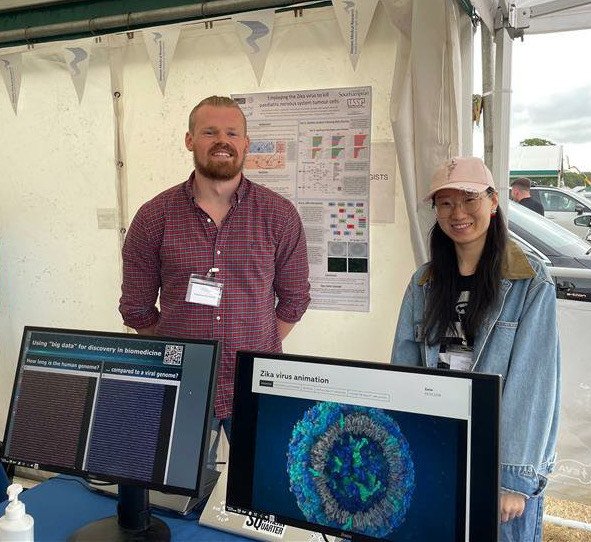Current research projects
In 2023, Dr Gao, working with Prof Juliet Gray and Dr Zoë Walters at the University of Southampton, aimed to determine the role of natural killer cell- mediated anti-tumour effects in neuroblastoma, after treatment with EZH2. The objectives of the study were to look at the correlation between EZH2 protein expression and the surface expression of natural killer ligands in neuroblastoma cells, and to determine if the natural killer cells induced cytotoxicity that could be enhanced in the neuroblastoma cell lines with EZH2 inhibitors.
This year we reviewed the current results of the research initially funded by Neuroblastoma UK from 2010 to 2017. Our Symposiums over the last ten years have brought together researchers to share their work and highlight topics, examples are: new treatments, advances in differentiation therapy, genetic landscape of neuroblastoma , the role of MYC gene and micro RNA signatures.
Intensive chemotherapy used in the treatment for high-risk neuroblastoma does not cure all children and has significant side effects and long-term toxicity, so it is imperative that we continue to look for new treatments. One area is to improve the efficacy of immunotherapy. Anti-GD2 immunotherapy is now a mainstay in the therapy of neuroblastoma. Natural killer cells play a major role in the effectiveness of anti-GD2 immunotherapy and EZH2 alters the action of natural killer cells. This pilot study will investigate the benefit of combining EZH2 inhibitors and anti-GD2 immunotherapy.
Members of this team at Southampton discovered that the Zika virus can specifically infect and kill cells in childhood brain tumours, and it has shown some promise in the laboratory with aggressive neuroblastoma. The funded research will look into the appropriateness of using this virus to specifically infect and destroy cancer cells without destroying normal cells; an approach known as oncolytic virotherapy. These are attractive potential treatments for childhood cancers as they typically have low toxicity and are well tolerated.
Thanks to your kind donations, Neuroblastoma UK is pleased to announce two research grant awards totalling £683,477, with a focus on improving treatment for children with advanced stages of the disease.
The grants, which include a donation of £15,000 from charity Friends of Rosie, will enable scientists to progress their research and develop safer, non-invasive and more effective treatment for children with the disease.
We are delighted to announce the launch of our new research Grant Round for 2021.
Postponed from 2020 due to the coronavirus pandemic, our biennial grant round for 2021 will focus on applications for research that will have the greatest potential impact to improve treatment for children with neuroblastoma.






